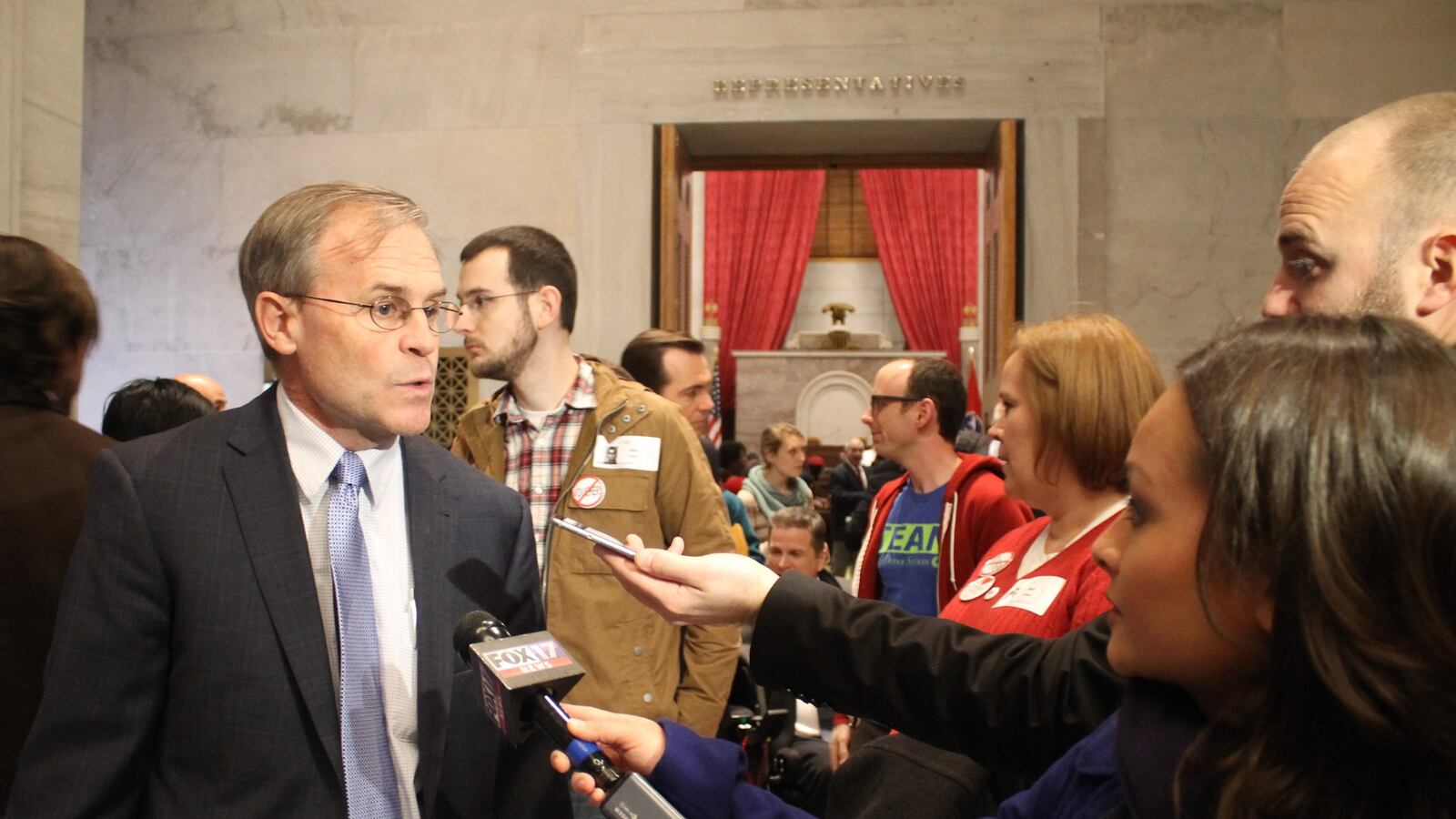A new amendment to a hotly contested piece of voucher legislation scheduled for a vote Thursday would make Memphis the home of a pilot program in which families could divert public funding for private school tuition.
The proposal was filed as an amendment Wednesday by Rep. David Hawk, a Republican from Greeneville, about 500 miles from Memphis. It has the support of Rep. Bill Dunn, the bill’s sponsor, a Knoxville Republican.
The measure would dictate that 5,000 vouchers would be handed out in the 2017-2018 school year to low-income students in Shelby County Schools who are zoned to the bottom 5 percent of Tennessee schools. That’s considerably fewer than the original legislation, which would allow up to 20,000 vouchers in any district with schools in the bottom 5 percent by 2020. The amendment doesn’t specify the length of the proposed pilot program.
“The purpose of the pilot project shall be to evaluate the effectiveness of the scholarship program before broadening its scope to other school systems,” the amendment reads. The legislature would assess the effect on educational achievement and the fiscal capacity on Shelby County Schools before expanding vouchers to other districts.
Memphis is already is ground zero for the Achievement School District and home to the vast majority of the state-run district’s schools. It’s also home to many of the state’s lowest-performing schools, although Metro Nashville, Hamilton, Knox and Madison counties have some as well.
The fate of the voucher legislation, which was considered a sure thing by its proponents when the legislative session began last month, is now less sure, and Dunn has been considering amendments that might court legislators on the fence.
Amanda Chaney, a spokeswoman for the Tennessee Education Association, said opponents to vouchers shouldn’t stand for any version of the bill.
“Vouchers in any form are bad for Tennessee, regardless of whether it’s limited or not,” she said.
Chaney pointed to a bill that unanimously passed the Senate Education Committee on Wednesday, expanding eligibility for the Individualized Education Act — a voucher program to launch in 2017 for students with severe disabilities — to students not already enrolled in Tennessee public schools.
“That’s a good example of something they made very limited in the first year, and now they’re already expanding it before the program has even been implemented,” Chaney said.
Leaders with the Black Alliance for Educational Options, which has been building a base of support in Memphis, were open to and optimistic about the latest amendment.
“We are still excited that local students in Memphis will have the opportunity to take advantage of this option, but we want to emphasize the need for students across the state,” said Mendell Grinter, the group’s state director. “I think legislators really want to make sure that whatever they do is going to benefit students, and what they’re trying to do is making sure it serves kids well before moving forward.”

